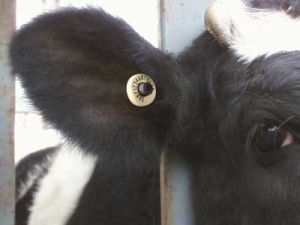Otago Regional Council to launch winter flyovers
Otago Regional Council is set to begin its annual winter farm flyovers in the next three weeks.
 National Animal Identification and Tracing, originally thought to be a hindrance, has turned out to be a beneficial planning tool.
National Animal Identification and Tracing, originally thought to be a hindrance, has turned out to be a beneficial planning tool.
Think again about the benefits to be gained from farm environmental planning, says consultant Charlotte Glass.
Glass, who this week will lead Ravensdown’s ‘getting started with farm environmental planning’ workshop at the South Island Dairy Event (SIDE), says many regional councils have chosen to use farm environmental plans (FEPs) to ensure farmers meet environmental obligations.
“FEPs are increasingly becoming mandatory conditions for resource consent for particular land uses or practices,” Glass says.
“But if you take time, plan ahead and understand the FEP process, you will see opportunities to optimise your business. Look at it as a successful way to manage environmental risk and future-proof your farm. You can add real value now and in future.”
Glass comments that, for example, GST and National Animal Identification and Tracing, originally thought to be a hindrance, have turned out to be beneficial planning tools.
“When GST returns were first required, it seemed like there would be no benefit, but in fact it helped farmers focus on budget and variance reporting and for many, provided the necessary prompt to focus more regularly on the financial side of the business.”
The SIDE takes place at Lincoln University from June 22 to 24. Ravensdown’s workshop, presented by Glass and Ravensdown farm environmental consultant Anna McLachlan, will walk farmers through the nutrient management and irrigation sections of DairyNZ’s Sustainable Milk Plan (SMP).
The SMP, now being developed, is designed to be a nationwide standard template that meets the requirements of regional councils and milk companies. It is the same as a FEP.
The FEP process is new territory for the industry and only a few professionals have the knowledge and training required to produce plans. Regional councils are also at different stages in deciding how to monitor environmental obligations. “It’s a complex picture, so it will take time to develop and refine,” Glass says.
Horticulture New Zealand (HortNZ) says a new report projects strong export growth for New Zealand's horticulture sector highlights the industry's increasing contribution to the national economy.
Fonterra shareholders say they will be keeping an eye on their co-operative's performance after the sale of its consumer businesses.
T&G Global says its 2025 New Zealand apple season has delivered higher returns for growers, reflecting strong global consumer demand and pricing across its Envy and Jazz apple brands.
New Zealand's primary sector is set to reach a record $62 billion in food and fibre exports next year.
A new levying body, currently with the working title of NZWool, has been proposed to secure the future of New Zealand's strong wool sector.
The most talked about, economically transformational pieces of legislation in a generation have finally begun their journey into the statute books.
President Donald Trump’s decision to impose tariffs on imports into the US is doing good things for global trade, according…
Seen a giant cheese roll rolling along Southland’s roads?